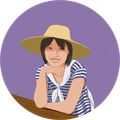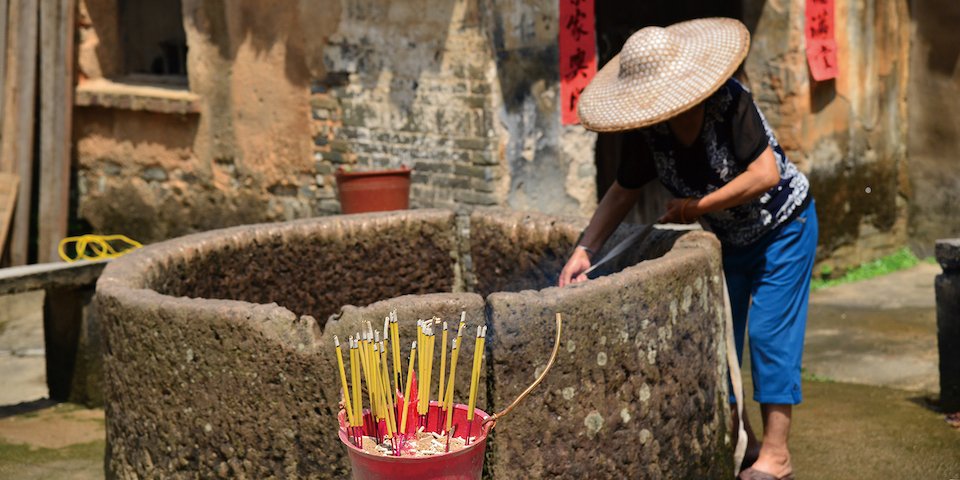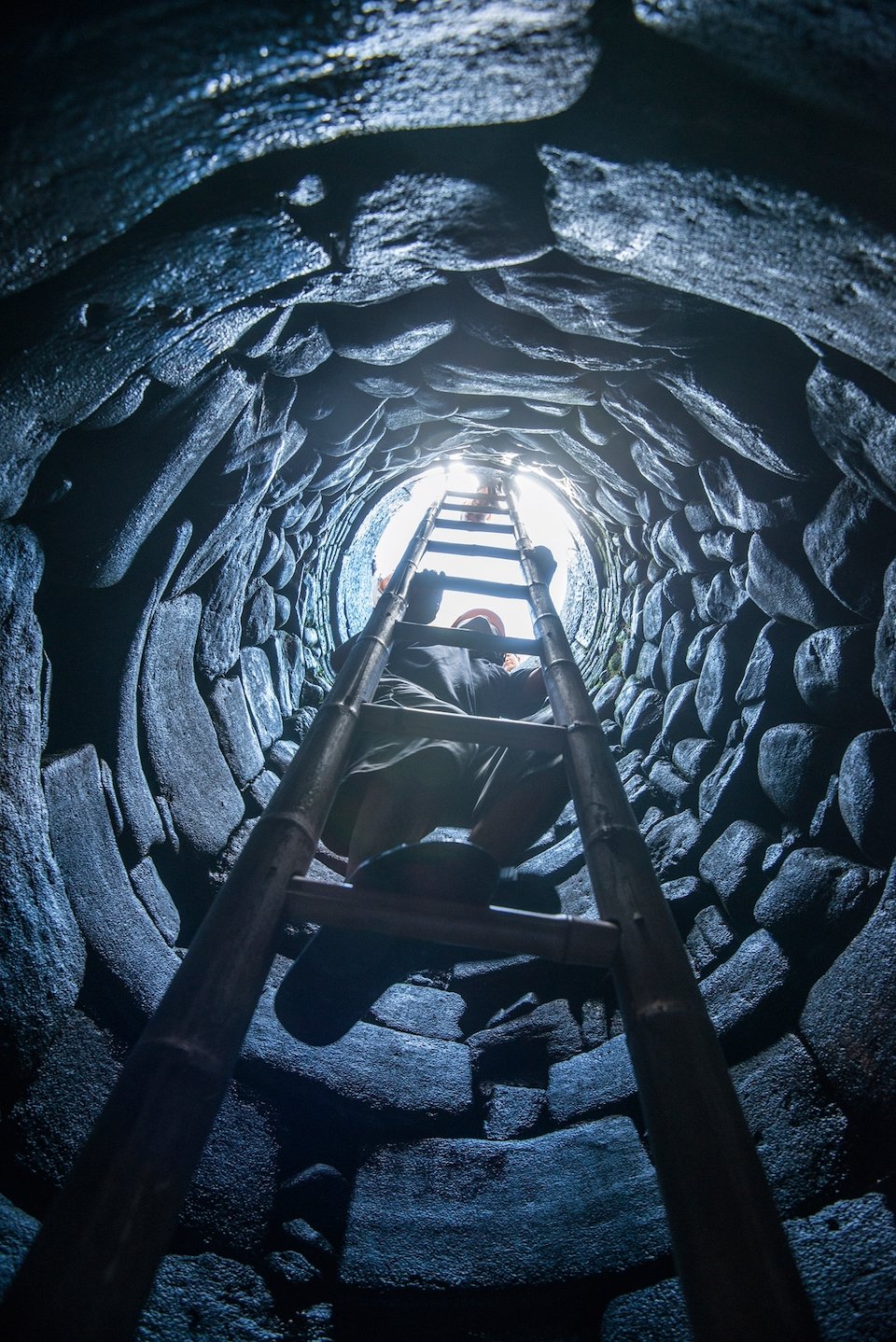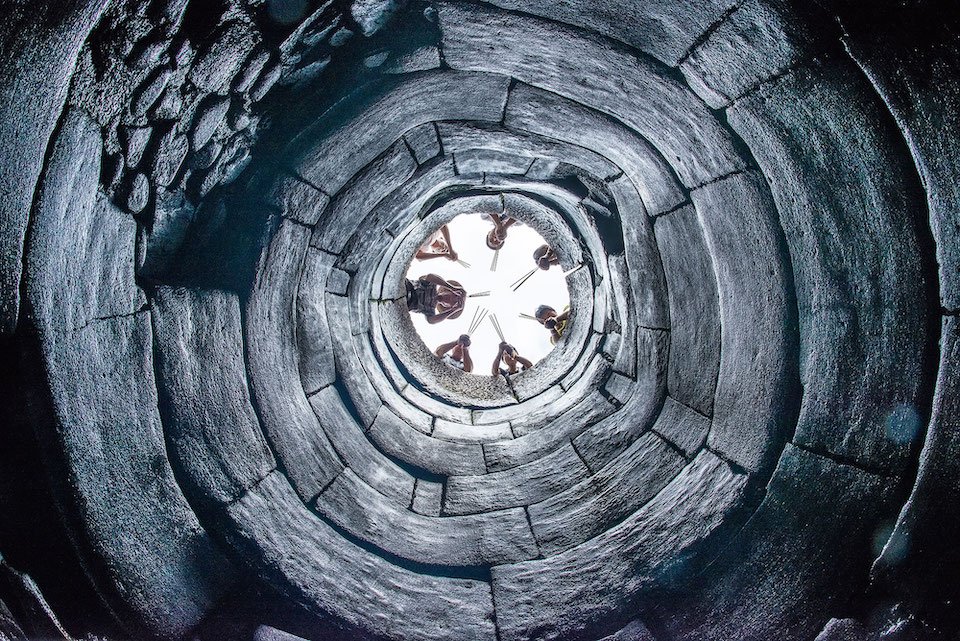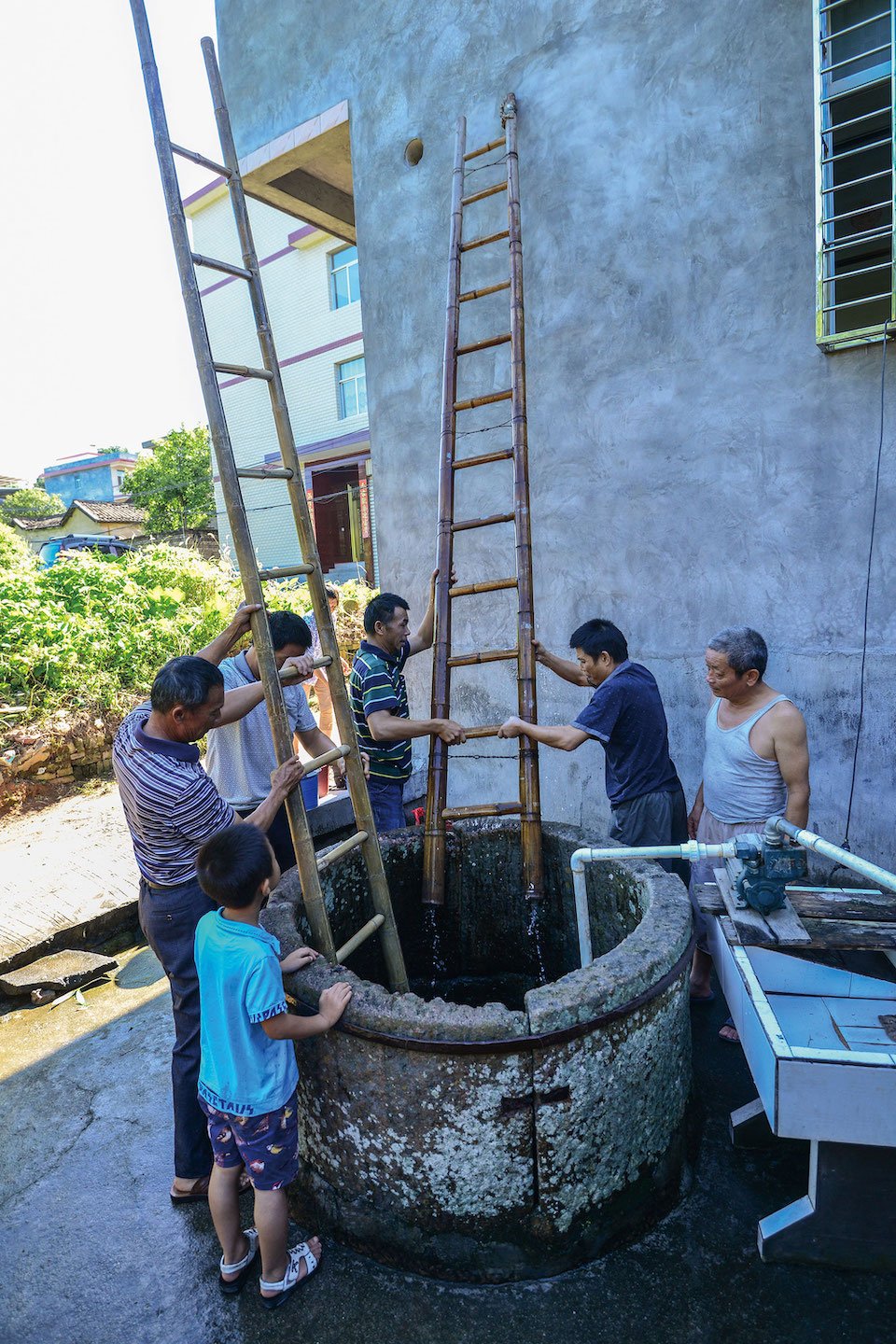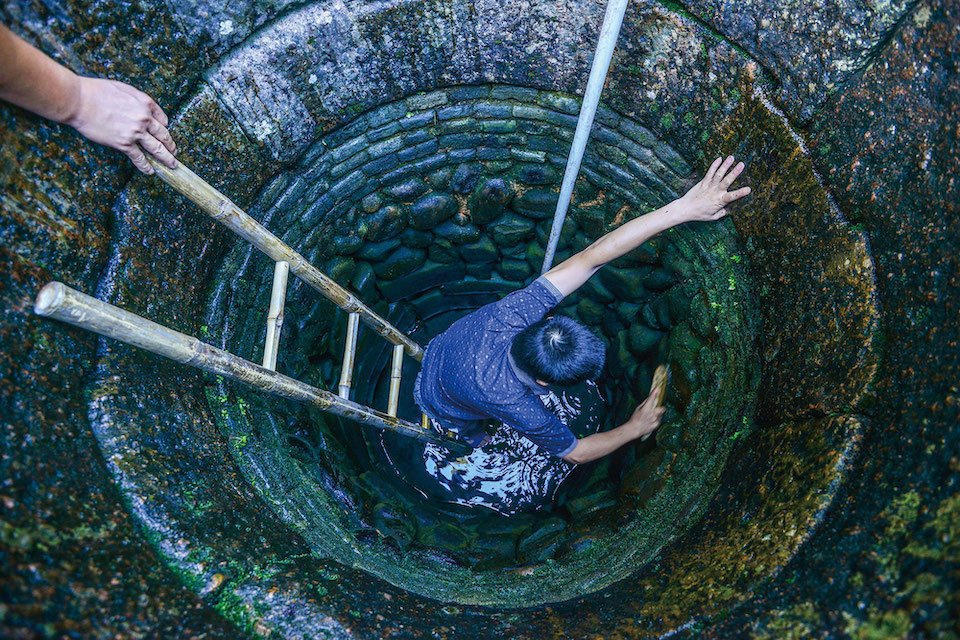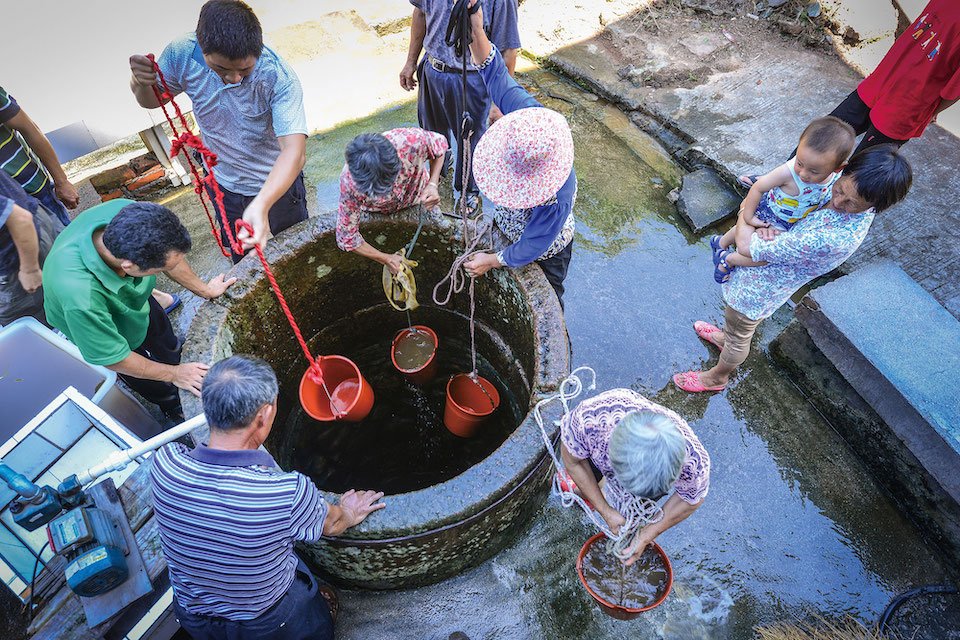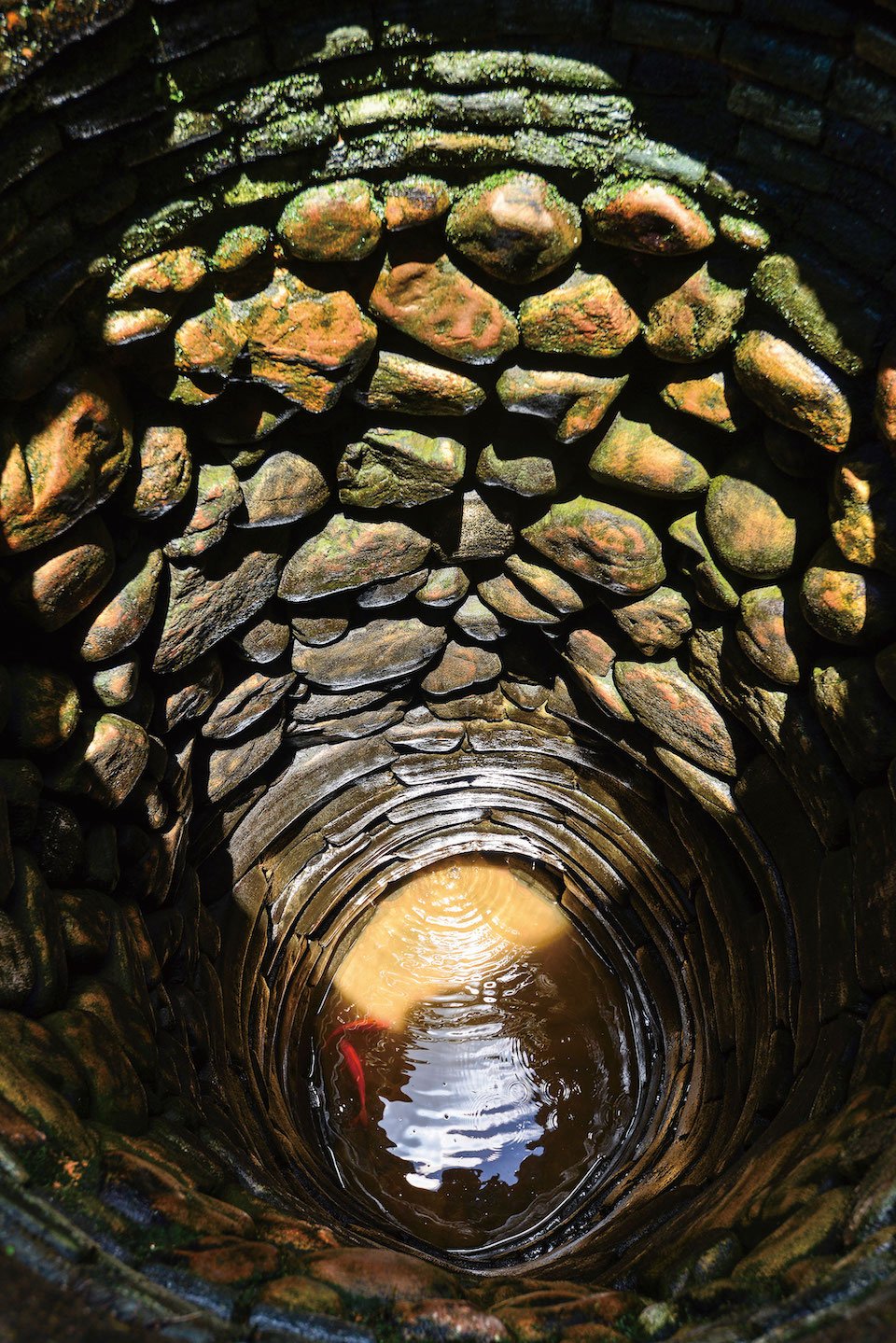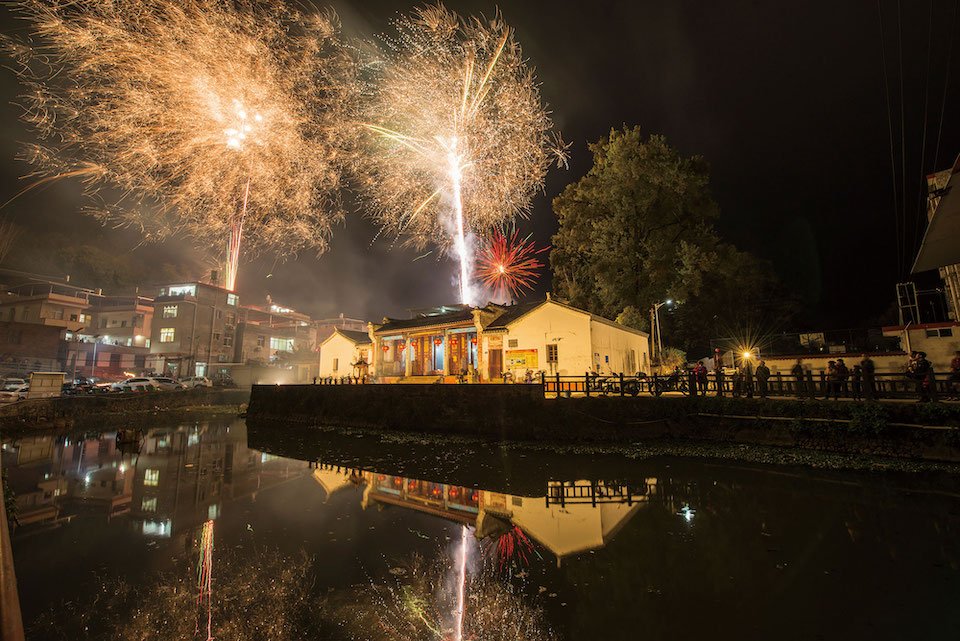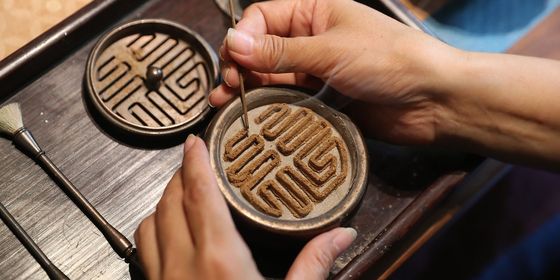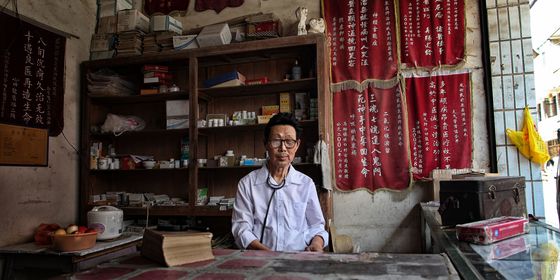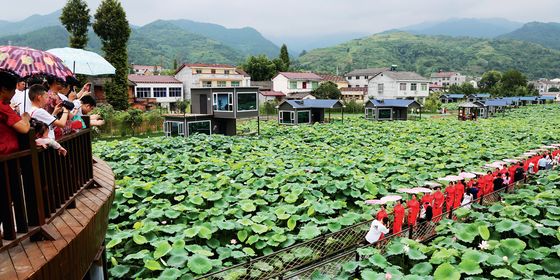An annual well-washing tradition lives on in the Hakka villages of Fujian province
Photographer Li Guochao digs deep in order to understand the history of his native Wuping county. The predominantly Hakka cultural region of southern Fujian province is dotted with ancient stone wells that used to serve as the main water source for isolated villages. “Every well has a different story,” he says.
No tradition exemplifies the historic importance of Wuping’s wells like the annual “change of well” ritual. In this 250-year-old ceremony, each village drains their well, gives it a thorough scrub-down, and spruces up its surroundings. The date of the ceremony varies—villages in Wuping county observe it on the birthday of the original well-digger or the dates of significant events in local history; whereas neighboring regions, such as Hua’an county, celebrate it alongside the Dragon Boat Festival in the fifth lunar month. Preparations begin a month ahead, with a different household leading the ceremonies each year. An elder from the organizing household collects donations to fund the clean-up and assigns duties to each family, and leads the villagers in lighting incense beside the well before the cleaning begins.
An itinerant people that migrated southward to Fujian in the 12th century to escape the advancing Mongol armies, the Hakka place strong emphasis on community. Their iconic dwellings, the circular tulou of Fujian and square weilongwu of Guangdong, are miniature fortresses that protected each clan against hostile neighbors that often persecuted the Hakka newcomers. Wells were often the center of each tulou or village—a (literal) watering-hole where villagers held meetings and gossiped as they drew water up from the depths.
“Though in Wuping and surrounding counties, tap water has already replaced well-water, and this centuries-old well-changing custom is on the decline, those who grew up drinking from the ancient wells will never forget the sound of women beating their laundry by the well each morning, or going for ‘story time’ beside the well,” says Li. “The well is a masterpiece from our ancestors.”
Photography by Li Guochao
All Is Well is a story from our issue, “Something Old Something New.” To read the entire issue, become a subscriber and receive the full magazine.






